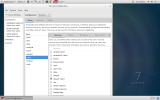| « Augmented reality, sort of, Sasquatch style | Susan Boyle, never give up your dream » |
Mahalo Answers worked for me
04/24/09
During the live webcast of This week in Tech episode 191, Corked I was in the show chat room and had a short discussion with another TWIT listener over an article I had heard about which suggested fewer scholars were being cited more frequently in academic papers. The authors argued this decreased the breadth of knowledge in academic research. Unfortunately I couldn't remember where I had heard it. I spent about 10-15 minutes in a fruitless Google search so I decided to give Mahalo answers a try. If you've heard of Yahoo answers Mahalo answers is almost exactly the same with one important difference. Mahalo answers lets the questioner assign a tip to the question. The best answer to the question earns the tip. Tips are expressed in Mahalo dollars which cost one real dollar. After earning $40 dollars you can get your tip money back in real dollars at 75 cents on the dollar. An added wrinkle is that for questions that don't have a tip value assigned by the questioner Mahalo is providing a $1 tip, at least for now. To help increase interest in Mahalo questions Mahalo has temporarily bumped the value on the questions they are providing tips for to $2.
I suppose I could have asked the question at Yahoo answers too to give a better comparison but I didn't. I posed the question "I heard about a study showing fewer scholars are referenced in academic papers since the advent of electronic journals. Looking for paper." I added the following additional information "The study purported to show that fewer scholars were being cited more frequently in academic papers. The authors argued this decreased the breadth of knowledge in academic research. I'm looking for a reference to the study."
A little more than 12 hours later I received an email from Mahalo telling me that someone had answered my question. The answer was:
It is here: http://www.sciencemag.org/cgi/content/abstract/321/5887/395
To quote the abstract:
Using a database of 34 million articles, their citations (1945 to 2005), and online availability (1998 to 2005), I show that as more journal issues came online, the articles referenced tended to be more recent, fewer journals and articles were cited, and more of those citations were to fewer journals and articles. The forced browsing of print archives may have stretched scientists and scholars to anchor findings deeply into past and present scholarship.
Unfortunately a flood at my local library has shut down the periodical room so I haven't had a chance to read the original article which appeared in the July 18th, 2008 edition Of Science.
The upshot, crowd sourcing works and the Mahalo idea of setting up a system of micro payments to give people added incentive to answer questions is a winner. My wife likes to help answer the math questions on Yahoo answers and if enough people move to Mahalo she may get the added benefit of earning a few dollars. As long as Mahalo continues to offer tips to answers questions it's worth the time to drop by and see if you know the answer to a question someone is willing to pay for.
1 comment
Great blog guys, if you like making your garden look nice then check out http://www.poshpatio.co.uk/, for your large plant pots.
